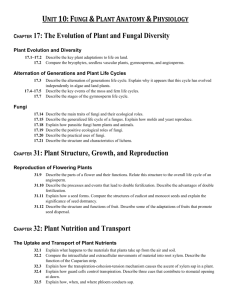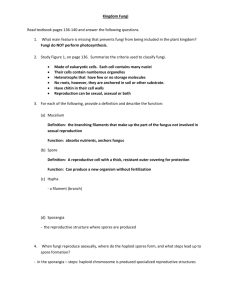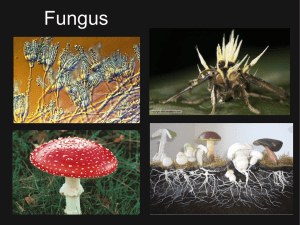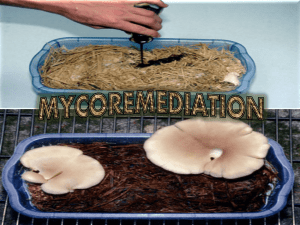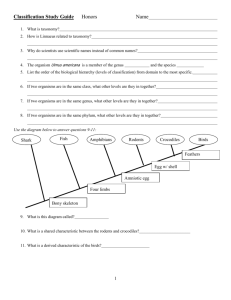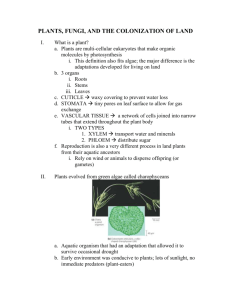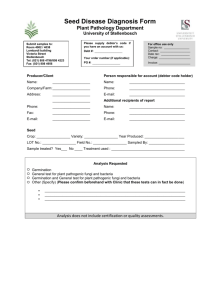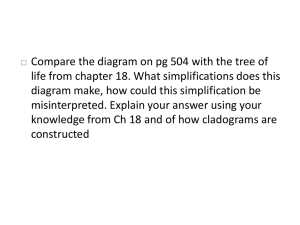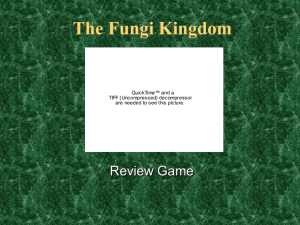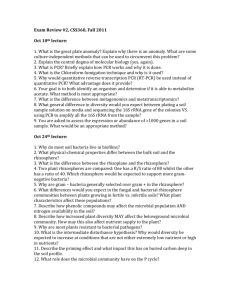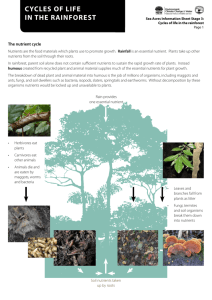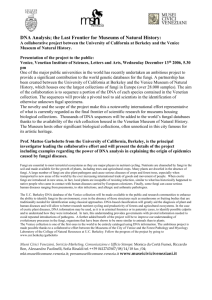Work sheet for assignment 4
advertisement
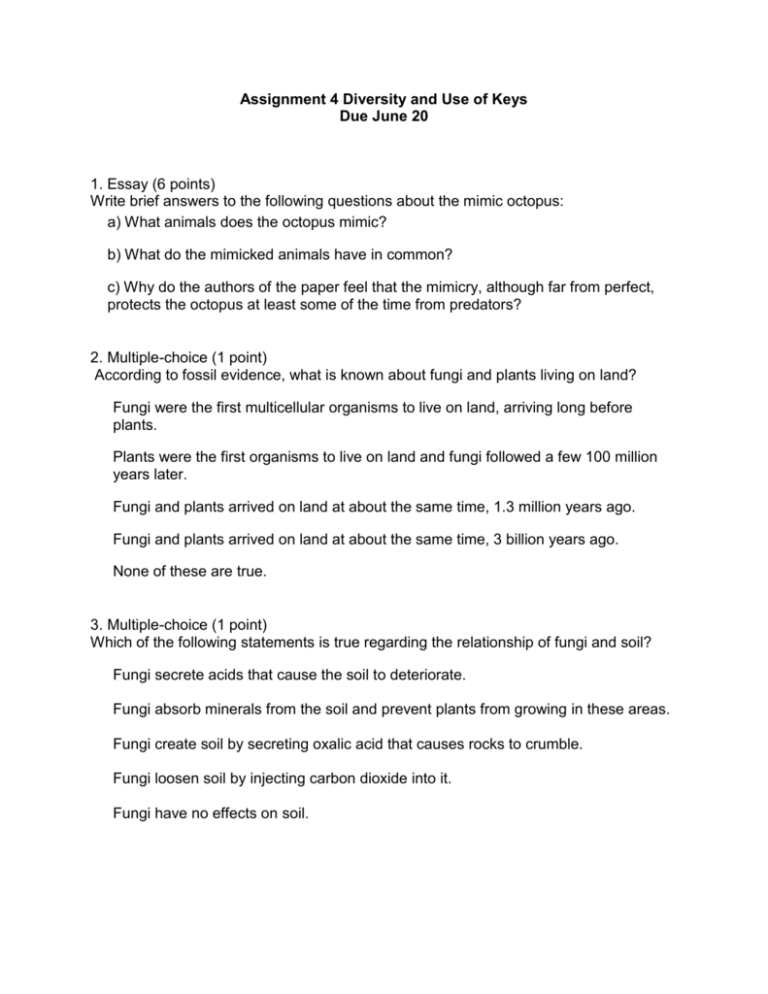
Assignment 4 Diversity and Use of Keys Due June 20 1. Essay (6 points) Write brief answers to the following questions about the mimic octopus: a) What animals does the octopus mimic? b) What do the mimicked animals have in common? c) Why do the authors of the paper feel that the mimicry, although far from perfect, protects the octopus at least some of the time from predators? 2. Multiple-choice (1 point) According to fossil evidence, what is known about fungi and plants living on land? Fungi were the first multicellular organisms to live on land, arriving long before plants. Plants were the first organisms to live on land and fungi followed a few 100 million years later. Fungi and plants arrived on land at about the same time, 1.3 million years ago. Fungi and plants arrived on land at about the same time, 3 billion years ago. None of these are true. 3. Multiple-choice (1 point) Which of the following statements is true regarding the relationship of fungi and soil? Fungi secrete acids that cause the soil to deteriorate. Fungi absorb minerals from the soil and prevent plants from growing in these areas. Fungi create soil by secreting oxalic acid that causes rocks to crumble. Fungi loosen soil by injecting carbon dioxide into it. Fungi have no effects on soil. 4. Multiple-choice (1 point) According to the fossil record, how tall were the "giant" fungi that lived 400 million years ago? 6 inches 1 foot at least 3 feet at least 20 feet There were no giant mushrooms; these fossils are ferns. 5. Essay (2 points) View the key to U.S. currency. Then indicate how you would change this key to include a $20 bill. (One or two sentences are sufficient.) 6. True or False (2 points--0.5 points each) Answer these questions based on the video of fungi biology. Write the word true or false in each blank. ____ Fungal cells typically have haploid nuclei, except just prior to meiosis ____ Haploid nuclei from different fungal individuals (e.g., mom and dad equivalents) in some groups can coexist in the same cell without fusion. ____ The dikaryotic stage is part of the sexual cycle of Ascomycota, but not Basidiomycota. ____ Sacs containing 8 spores are typically found on Basidiomycota gills. 7. File upload (10 points) Construct a key for the 9 specimens in the fungi collection. Base your key on the photographs and videos of these specimens. You may start with the "student key" below or use a different approach. Submit your key to WebAssign as a doc or pdf file (pdf is preferred). Note: Remember that your key is for identification of the 9 organisms provided in the collection. So the key must lead to the common or scientific name of each species (not to group names like Ascomycetes). The slime mold is an exception, since we do not know its name. First part of a student's key 1a. Having stalked reproductive structures that look like sporangia........go to 2 b. Reproductive structures unlike that in 1a...........................................go to 3 2a. On microscopic examination, a mycelium is present.........................go to 4 b. On microscopic examination, a mycelium is not present; the organism behaves like a huge amoeba.............................................slime mold 8. Fill-in-the-blank (7 points) View the videos of invertebrate animals, and identify the phylum to which each animal belongs. Use the key to invertebrates to assist you. Then fill in the blanks with one of the following phylum names (use correct spelling or WebAssign will mark your answer as incorrect). Animal 1 ____________________ Cnidaria Animal 2____________________ Annelida Animal 3____________________ Nematoda Animal 4____________________ Platyhelminthes Animal 5____________________ Arthropoda Animal 6____________________ Mollusca Animal 7____________________ Echinodermata Note: Some phyla may be used more than once or not at all.
